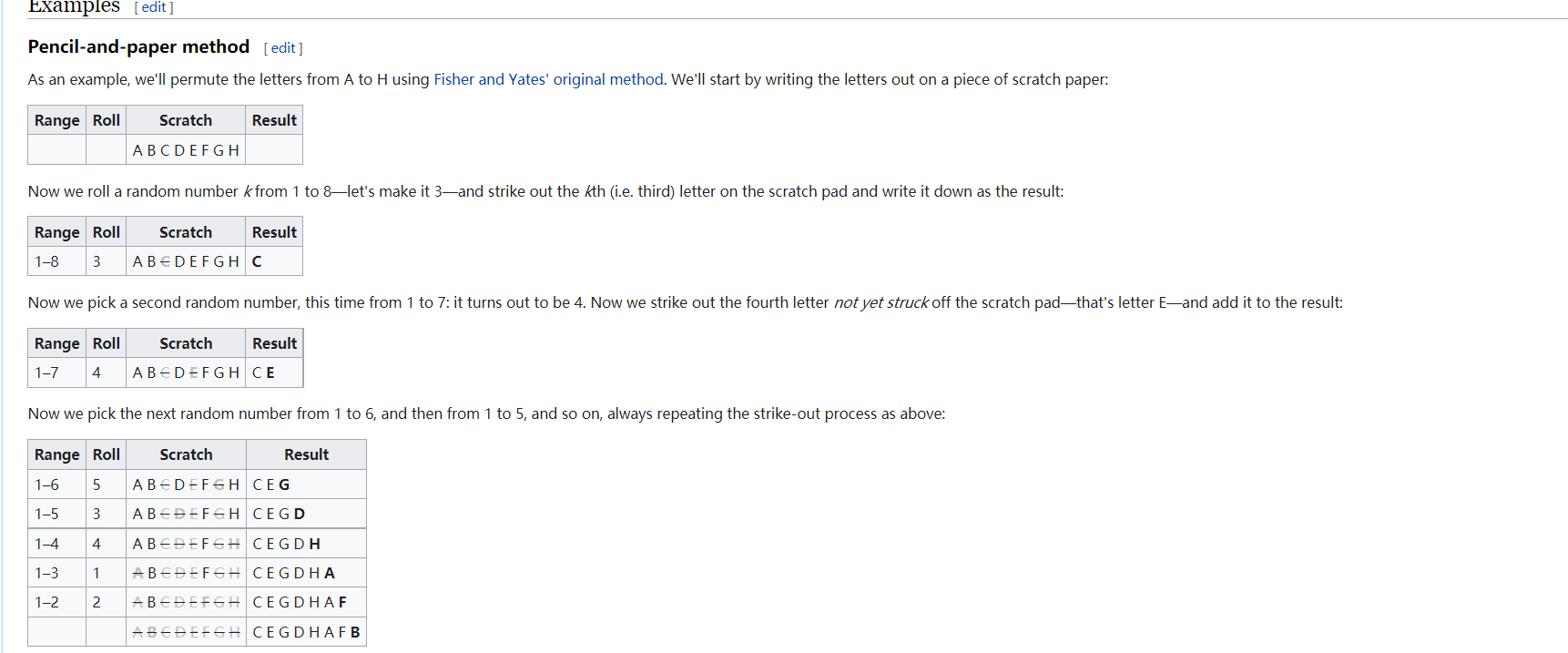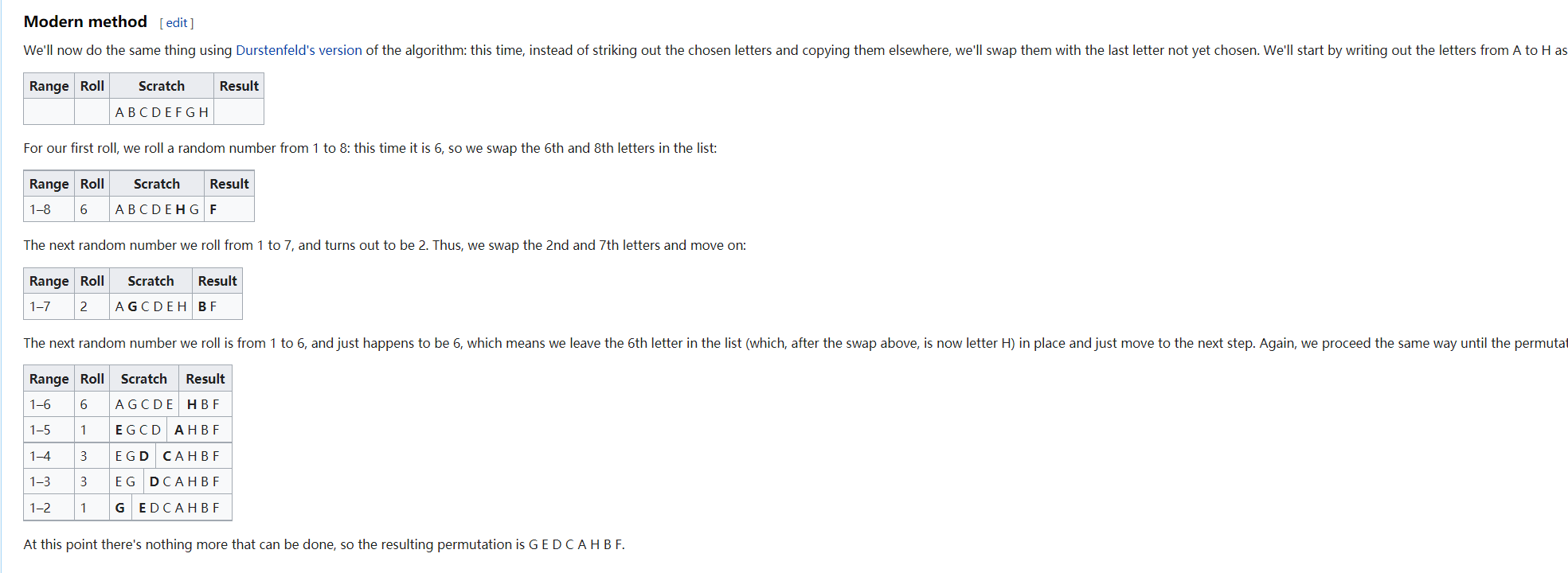注意:
1 <= n_rows, n_cols <= 10000
0 <= row.id < n_rows 并且 0 <= col.id < n_cols
当矩阵中没有值为 0 时,不可以调用 flip 函数
调用 flip 和 reset 函数的次数加起来不会超过 1000 次
示例 1:
输入:
["Solution","flip","flip","flip","flip"]
[[2,3],[],[],[],[]]
输出: [null,[0,1],[1,2],[1,0],[1,1]]
示例 2:
输入:
["Solution","flip","flip","reset","flip"]
[[1,2],[],[],[],[]]
输出: [null,[0,0],[0,1],null,[0,0]]
需要实现这三个函数
class Solution {
public Solution(int m, int n) {
}
public int[] flip() {
}
public void reset() {
}
}
开始我是想用暴力解法,新建一个m*n的数组,然后rand(total),再把这个值划掉。就是wiki中的

但是其实可以不划掉,只是两个值交换

注意random的使用
2、带参的nextInt(int x)则会生成一个范围在0~x(不包含X)内的任意正整数
例如:int x=new Random.nextInt(100);
则x为一个0~99的任意整数
最后贴一个别人的答案在这里.
个人理解, 这里并不用建一个m*n的数组,只要用map,把特殊的mapping存起来,也就是V[index]!=index的值存起来,(这些是已经flip过的,没flip过的位置V[index]==index)
class Solution
{
private Map<Integer, Integer> map;
private int rows, cols, total;
private Random rand;
public Solution(int n_rows, int n_cols)
{
map = new HashMap<>();
rand = new Random();
rows = n_rows;
cols = n_cols;
total = rows * cols;
}
public int[] flip()
{
// generate index, decrease total number of values
int r = rand.nextInt(total--);
// check if we have already put something at this index
int x = map.getOrDefault(r, r);
// swap - 当前没有flip过的最后一个,和随机数的位置呼唤,而数字X则返回。
map.put(r, map.getOrDefault(total, total));
return new int[]{x / cols, x % cols};
}
public void reset()
{
map.clear();
total = rows * cols;
}
}
原文:https://www.cnblogs.com/tangdatou/p/15115863.html